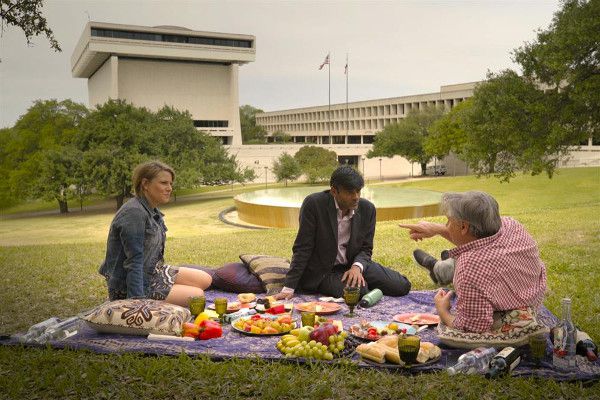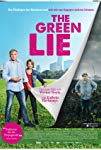Eye For Film >> Movies >> The Green Lie (2018) Film Review
The Green Lie
Reviewed by: Jane Fae

"They tell me I can save the world. All I have to do is buy sustainable and fair products. But that's a lie."
Thus Werner Boote, director of The Green Lie (Die Grüne Lüge), commencing his documentary with an assertion as hard-hitting as it gets. Much more hard-hitting, perhaps, than his otherwise amiable demeanour might imply, as he bumbles through the rest of the documentary playing “innocent abroad” to Kathrin Hartmann's more sceptical eco-journalist-cum-activist.

The camera follows Werner and Kathrin on a worldwide tour which allows them to poke around under the bonnet of sustainability. Along the way they meet with a motley assortment of people, from company mouthpieces, to green activists and the representatives of indigenous people, dispossessed, fighting to reclaim their land.
There is even an encounter with Noam Chomsky.
There are two tropes in operation here: Werner as innocent consumer, falling for the rhetoric of the big corporate enterprises pushing sustainability; and Werner as naif, bumbling from one encounter to the next. Meanwhile, Kathrin, the firebrand in this relationship, is at his elbow every step of the way, demanding he open his eyes to what is going on.
Their sparring gives humour and heart to a format that might otherwise come across as dry and a little preachy. Thus, in the opening scenes, the viewer joins Werner and Kathrin as they wander around the aisles of a supermarket, like any middle-aged married couple. Kathrin picks up random products, reads the labels and scowls. Werner grabs tomato soup and pizza burger and asks “what's wrong with that?”
Pretty much everything, it turns out, as Kathrin launches into a diatribe against palm oil and an industry that would have us believe that sustainability works. For that is the lie that preserves and protects. As long as business can persuade us that we can have everything we have now so long as we build it more carefully, more sustainably, nothing ever really changes.
“When you do the wrong thing that makes intensive use of raw materials, you add to the damage – but elsewhere”, as Kathrin explains later, after Werner has just introduced her to his “eco-friendly” racing car. From palm oil, which is rapidly destroying rainforest and traditional ways of life, to BP's cover-up after a major oil spill. Then on to the coal industry, which pretends to clean up its act while delivering much more of the same – and finally to indigenous peoples in South America, driven off their land by corrupt politicians and authorities so that large agribusiness can prosper.
If you weren't already cross about what is being done to the world in your name – our name – this film will likely make you so. At its heart a debate between Kathrin and Werner at almost precisely the mid point, in which both confess to complicity in the system and to feeling guilty – but Werner talks about working with the megacorps to make things better, Kathrin advocates tearing them down.
Slowly the documentary moves on from familiar “isn't-it-awful?” territory to something much more radical. The fundamental premise, emerging around the point where they meet with Noam Chomsky, is that a radical restructuring of society and business is required: one that puts people at the heart of things rather than profit.
It is at this point that the bumbling and the sparring makes sense: because this is political in a way that is rarely found in documentary, and were it delivered in plain sight, not everyone would stay for the final reveal. Director Werner Boote is, one must assume, rather more clear-sighted, dedicated to change than his comedy everyman alter ego suggests.
And so in the end you come for the exposé: for the insights into how large companies have been, are pulling the wool over our eyes, and you leave with an alternative way forward and with hope.
Not quite a party political broadcast, so much as a call to arms. And a notch up from Al Gore's climate change documentary, An Inconvenient Truth. For The Green Lie focuses on the need to take action – and owns that some of that action may not be entirely comfortable for those who have benefited from our current way of life.
Reviewed on: 27 Sep 2018















